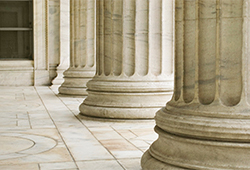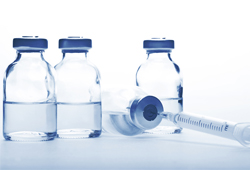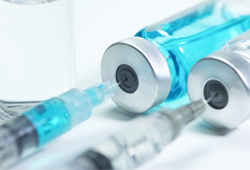Qualifying for Immunity Under the U.S. PREP Act During COVID-19
 As part of the U.S. government’s response to the COVID-19 pandemic, on March 10, 2020, the Secretary of Health and Human Services (“Secretary”) issued a Declaration pursuant to the Public Readiness and Emergency Preparedness Act (“PREP Act”), 42 U.S.C. § 247d-6d. This Declaration activated immunity from personal injury, property damage, and other types of claims for companies and certain professionals who manufacture, distribute, or use “covered countermeasures”— certain drugs and devices, or components thereof, that may be used to treat COVID-19 patients or combat the COVID-19 pandemic.[1] The PREP Act provides broad immunity from liability, but applies only to products and persons that qualify for the immunity under the PREP Act and the limits established in the Secretary’s Declaration.
As part of the U.S. government’s response to the COVID-19 pandemic, on March 10, 2020, the Secretary of Health and Human Services (“Secretary”) issued a Declaration pursuant to the Public Readiness and Emergency Preparedness Act (“PREP Act”), 42 U.S.C. § 247d-6d. This Declaration activated immunity from personal injury, property damage, and other types of claims for companies and certain professionals who manufacture, distribute, or use “covered countermeasures”— certain drugs and devices, or components thereof, that may be used to treat COVID-19 patients or combat the COVID-19 pandemic.[1] The PREP Act provides broad immunity from liability, but applies only to products and persons that qualify for the immunity under the PREP Act and the limits established in the Secretary’s Declaration.
 The UK Government has announced a new fund that provides financing to UK start-ups and scale-ups in the form of a convertible loan which is invested directly by the Government. For further detail on the fund please see: https://www.gov.uk/guidance/future-fund.
The UK Government has announced a new fund that provides financing to UK start-ups and scale-ups in the form of a convertible loan which is invested directly by the Government. For further detail on the fund please see: https://www.gov.uk/guidance/future-fund. As discussed in Goodwin’s prior Client Alert, on April 10, 2020, the U.S. Department of Health and Human Services (HHS) began disbursing $30 billion to Medicare providers and suppliers under the Public Health and Social Services Emergency Fund (PHSS Emergency Fund). HHS is requiring providers to agree to certain terms and conditions or return the payments. A number of the terms and conditions created some confusion as to whether providers who have not provided services directly related to COVID-19 may keep the payments. HHS has now clarified that providers may keep payments distributed under the PHSS Emergency Fund regardless of whether they have or will provide services directly related to COVID-19.
As discussed in Goodwin’s prior Client Alert, on April 10, 2020, the U.S. Department of Health and Human Services (HHS) began disbursing $30 billion to Medicare providers and suppliers under the Public Health and Social Services Emergency Fund (PHSS Emergency Fund). HHS is requiring providers to agree to certain terms and conditions or return the payments. A number of the terms and conditions created some confusion as to whether providers who have not provided services directly related to COVID-19 may keep the payments. HHS has now clarified that providers may keep payments distributed under the PHSS Emergency Fund regardless of whether they have or will provide services directly related to COVID-19. As the COVID-19 pandemic continues to unfold, U.S. public company compensation committees face unique challenges as they focus on retaining and appropriately incentivizing employees while evaluating the impact of the pandemic on the company. This client alert provides a high-level overview of some key issues that compensation committees should be focusing on in this environment.
As the COVID-19 pandemic continues to unfold, U.S. public company compensation committees face unique challenges as they focus on retaining and appropriately incentivizing employees while evaluating the impact of the pandemic on the company. This client alert provides a high-level overview of some key issues that compensation committees should be focusing on in this environment. On Friday, April 10, 2020, the U.S. Department of Health and Human Services (HHS) announced it will begin disbursing $30 billion of the $100 billion of the Public Health and Social Services Emergency Fund recently allocated by the Coronavirus Aid, Relief, and Economics Security Act (CARES Act), signed March 27, 2020. Inclusive of the $30 billion, the $100 billion funding will be used to reimburse healthcare providers and facilities.
On Friday, April 10, 2020, the U.S. Department of Health and Human Services (HHS) announced it will begin disbursing $30 billion of the $100 billion of the Public Health and Social Services Emergency Fund recently allocated by the Coronavirus Aid, Relief, and Economics Security Act (CARES Act), signed March 27, 2020. Inclusive of the $30 billion, the $100 billion funding will be used to reimburse healthcare providers and facilities.